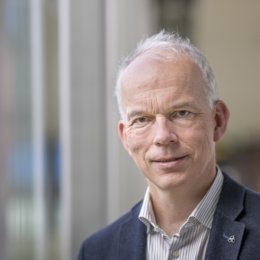The University of Twente is a leading international player in the field of Fluid Dynamics.
There are huge challenges for mankind to which fluid dynamics contributes in a major way: fluid dynamics is about flow in the ocean and in the atmosphere, about the blood circulation in your body, bacteria, and it will play a major role in renewable energy production.
At the University of Twente, we connect the fundamental physics of fluids to engineering: We offer top-level research and education in the field of fluid dynamics, as part of different study and research programmes.
Fluid Dynamics Education
Do you want to learn and work across disciplines within the field of fluid dynamics? Do you want to benefit from top facilities, such as the world-famous Max Planck Center for Complex Fluid Dynamics and the MESA+ institute? And do you want to learn from the best scientists in the field of fluid dynamics?
Then the multidisciplinary master programme Fluid Dynamics might be the right fit for you. This programme brings together the field of engineering and the field of physics and focuses on solving fluid dynamics problems to develop new knowledge, technology and solutions for applications with scales ranging from nano-meters to many meters.
What is a multidisciplinary master programme?
A multidisciplinary master programme builds a bridge between two (or more) master's programmes and allows you to transcend disciplinary boundaries and completely immerse yourself in the research field of your interest. You follow a joint core programme, consisting of essential courses from all the master‘s programmes involved, and you complete your programme with electives to specialise further in the field of your choice.
Why Study Fluid Dynamics?
Learn and work across disciplines Whether you have a background in Applied Physics or Mechanical Engineering, if you have an interest in the field of fluid dynamics and you do not want to limit yourself to one single discipline, the multidisciplinary master programme Fluid Dynamics is the right match for you.
Here, engineering and physics meet, allowing you to translate new discoveries in physics to actual implementation in daily life technology.
You have access to world-class research facilities The multidisciplinary master programme Fluid Dynamics offers you access to world-class labs and state-of-the-art facilities, such as the world-renowned Max Planck Center for Complex Fluid Dynamics and the MESA+ Institute. An exciting research environment and the best academic training in the world are therefore guaranteed!
Work together with top researchers on real-life cases The University of Twente is well-know and renowned for their research in the field of fluid dynamics. We offer a truly multidisciplinary environment in which you and your fellow students, together with junior and senior staff can develop in the rapidly developing research domain of fluid dynamics. Numerous world-class research groups are involved in the Fluid Dynamics programme. You get the opportunity to work alongside our researchers and learn directly from them.
The following research clusters and departments are involved:
You can tailor your own study programme Your study programme is not all fixed. There is quite some flexibility in composing a curriculum that meets your specific interests.
Of course, you have to take a set of compulsory courses. What these compulsory courses are, depends on the Master’s programme you are enrolled in (Applied Physics or Mechanical Engineering).
In addition, you can choose from a wide range of specialisation and elective courses. In your second year, you will be doing a compulsory internship at a company or organisation outside the UT, providing you with some valuable work experience.
Are You Admissible?
With a Bachelor’s in Applied Physics or Mechanical Engineering, you are generally directly admissible to this multidisciplinary programme. You register for the Master's that corresponds to your bachelor's degree.
So: if you have a Bachelor's degree in Mechanical Engineering, you sign up for the Master Mechanical Engineering. Upon enrolment, you opt for the multidisciplinary programme Fluid Dynamics.
Continue as a Researcher: Obtain a PhD
Instead of pursuing a professional career in fluid dynamics right away after obtaining your master’s, you can opt to follow a PhD programme at Twente Graduate School (TGS). This involves spending four years studying a particular research area in-depth at one of our research groups. Obtaining your PhD will earn you the title of Doctor (Dr).

